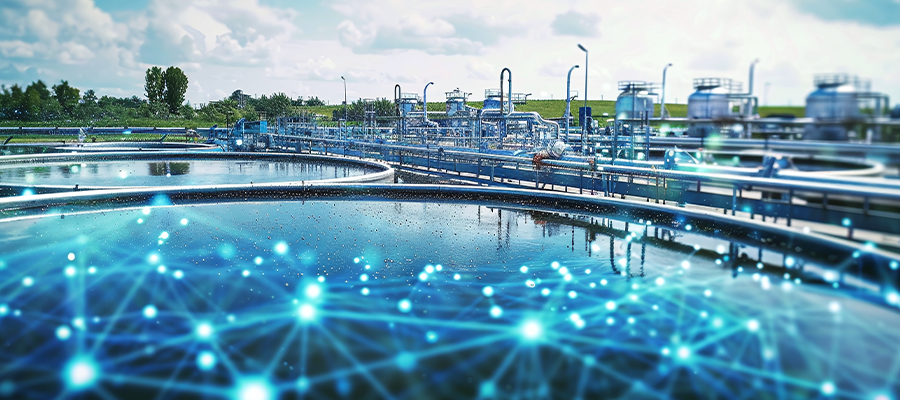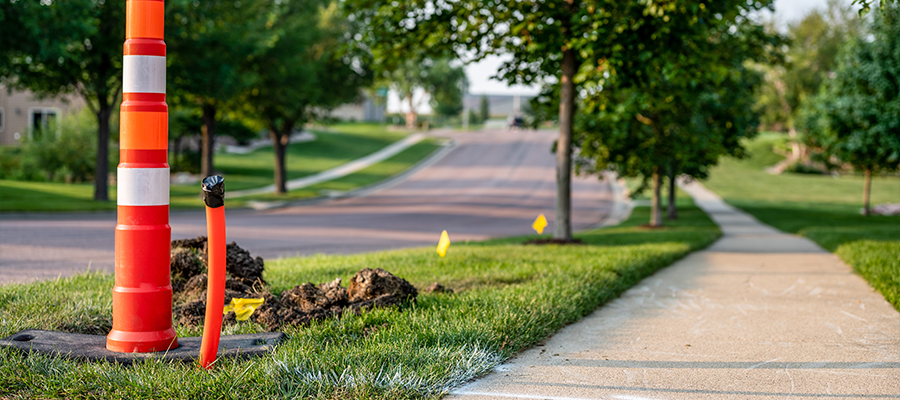Smart Water Infrastructure Growth Fueled by Grants

Smart Water Infrastructure Growth Fueled by Grants
By David Mack, Senior Business Development Manager, Bermex
North American water utilities are investing heavily in smart water infrastructure with new projects valued at over $530 million expected to have started in 2024 alone. Business Wire reports that demands for data-driven water management, and greater water conservation efforts when addressing leaks are driving the trend.
Water Magazine reports, “Smart metering has revolutionized the water sector, providing advanced tools for efficient, sustainable water resource management.” There are benefits similar to electric smart meters but there are others unique to water.
Water Management Efficiency: Smart meters provide utilities and customers with real-time data on consumption, which helps detect leaks, reduce waste, and manage usage more effectively. This conservation benefit is especially relevant in regions prone to drought and with limited water resources. One example reported by Smart Energy International is in Chandler, Ariz. In September 2024, the city announced a $14 million project to convert from advanced meter reading (AMR) to advanced metering infrastructure (AMI). A total of $1.2 million in grant funds from the Environmental Protection Agency (EPA) and the Water Infrastructure Finance Authority of Arizona (WIFA) will be used for the project.
Improved Leak Detection and Reduced Water Loss: Water is often lost in distribution systems due to undetected leaks, which can be costly and environmentally damaging. Having a robust smart water infrastructure enables utilities to monitor usage patterns and alert customers or technicians to leaks quickly, minimizing waste.
After its smart water meter installation, The City of Bloomington, Ill. stated on its website that the initiative will provide customers with the lowest cost of water while maintaining a high level of reliability and great customer service. A more modernized metering system will enable automated readings and will enhance their ability to respond to infrastructure issues more efficiently. Customers will also have access to more detailed water usage information to make informed decisions on how to manage water consumption and potential leaks.
Operational Cost Savings: While operational savings benefit all utilities, they are particularly impactful in smart water infrastructure that often require substantial labor and vehicle use for manual readings. Automated, remote readings eliminate the need for technicians to visit each meter, reducing the carbon footprint and overall operational costs of water utilities.
Data for Environmental and Regulatory Compliance: Smart water meters provide data that can help utilities comply with regulations, particularly where water management is regulated due to scarcity or conservation mandates. This data can also support environmental sustainability goals by helping utilities and consumers adopt better water usage habits. Smart meters are typically regulated by state regulatory bodies such as Public Utility Commissions (PUCs) or Public Service Commissions (PSCs).
Project Funding
Several federal agencies provide grants to support smart water meter installations as part of broader water conservation and management efforts. Grants are available from the U.S. Bureau of Reclamation WaterSMART program, the Bipartisan Infrastructure Law (BIL), as well as state-level programs.
The BIL provides funding for water infrastructure projects, specifically for upgrading metering infrastructure to improve water efficiency and conservation. Grants are often awarded to water utilities in regions facing high drought risks, helping communities manage and conserve water resources more effectively. For example, BIL-funded grants recently supported projects in states like California and Texas to modernize their water metering systems, with grants of up to $2 million per project.
A Partnership Approach for Installation Success
Smart water infrastructure starts with strategic collaboration. In partnership with the City of Richmond, Va., Bermex will begin installing 40,000 AMI meters in April 2025. Over the next 18 months, this initiative will modernize the city’s water system, providing greater efficiency, reliability, and long-term sustainability.
At Bermex, we strongly advocate for a partnership-based approach and strive to build a long-lasting relationship that benefits both parties and their respective businesses. Our objective is to provide a comprehensive solution that draws upon our extensive experience as one of the top utility asset service providers. Bermex’s expertise and experience alongside comprehensive management and reporting tools offer you unparalleled levels of service and access to information to enhance utility internal efficiencies.
Related Articles

By Tommy Combs, President, Bermex In the latest edition of the DIRT Report, the Common Ground Alliance (CGA) reveals that despite decades of progress in underground infrastructure damage prevention, the industry remains at a critical turning point. The 2024 data show a concerning plateau, and in some cases a reversal, in the trend of reducing[...]
Read More
By Mark Green, Business Development Manager, Bermex Environmental responsibility and resource conservation are more than good PR; they have become critical, bottom-line imperatives. Utility companies find themselves at the forefront of a sustainability battle that extends far beyond their traditional operational boundaries. At the heart of this challenge lies a deceptively simple yet profound issue:[...]
Read More
By Thomas Gooch, Director of Operations, Bermex Every few minutes across the United States, someone digging into the ground accidentally strikes an underground utility line. The consequences of these incidents extend far beyond the immediate damage to pipes, cables, or equipment. Utility strikes represent an extremely expensive and dangerous infrastructure challenge. The Financial Impact According[...]
Read More
By David Mack, Senior Business Development Manager, Bermex When it comes to preventing utility damages, most organizations focus on technology, training, and regulations. But at the 2025 CGA Conference & Expo, a powerful theme emerged from multiple speakers, including Dr. Victoria Grady of George Mason University: culture, not compliance, is the foundation of lasting safety[...]
Read MoreCategories
Recent Posts
- Diffusing a Difficult Customer [Infographic] 10th Sep 2018
- Neighborhood Safety [Infographic] 24th Sep 2018
- Bermex Has Named Keith Pancake as New Safety Manager 02th Dec 2019